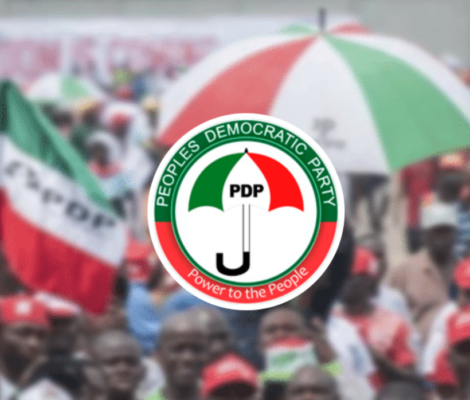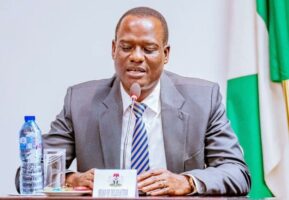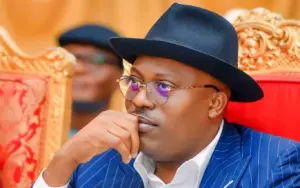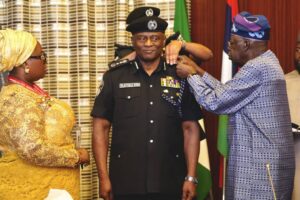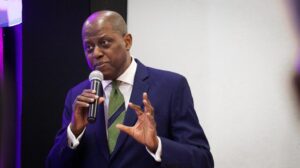The People’s Democratic Party (PDP) has long been plagued by internal divisions and power struggles, challenges that continue to shape its political fortunes more than two decades after its formation.
The party’s history is marked by factional disputes, court battles, and leadership tussles, with the latest developments in 2025 intensifying concerns about its unity ahead of the 2027 general elections.
Early signs of internal conflict emerged in 2006-2007, when rival factions within the party clashed over leadership and direction, exposing underlying tensions among top officials. These fissures persisted over the years, contributing to further crises.
Ahead of the 2015 presidential election, internal rebellions weakened the PDP’s cohesion, playing a role in its historic loss of the presidency for the first time since 1999. In the years that followed, the party faced a series of leadership crises, including the suspension of key officials in 2024, such as the National Publicity Secretary and Legal Adviser, amid ongoing factional disputes.
One of the most significant schisms involved the G5 governors and National Chairman Iyorchia Ayu, with the faction calling for Ayu’s resignation over alleged bias and mismanagement.
Court interventions led to Ayu’s suspension and sidelining, resulting in the appointment of Damagum as acting chairman, further deepening divisions.
Other recurring sources of tension have included regional rivalries, with accusations of northern favoritism fueling conflicts with southern leaders like Nyesom Wike, and proxy wars within party organs, as factions battled for control over party structures.
The party’s once-strong conflict resolution mechanisms, effective prior to 2015, have weakened, exacerbating the cycle of infighting.
Today, tension is building within the Peoples Democratic Party (PDP) as two rival camps schedule separate meetings for Tuesday at the party’s national headquarters, Wadata Plaza in Abuja.
Earlier yesterday, Samuel Anyanwu, an ally of Nyesom Wike, minister of the federal capital territory announced an emergency session of both the national executive committee (NEC) and the board of trustees (BoT). His faction, led by chairman Abdulrahman Mohammed, fixed the BoT meeting for 11 a.m., with the NEC to follow at 2 p.m. at the same venue. The group declared that participation would be mandatory, stressing that “crucial matters” were on the agenda.
However, a parallel leadership structure that emerged from the PDP’s weekend convention in Ibadan says it has its own plans for Wadata Plaza. Kabiru Turaki, elected national chairman at the convention, insisted that his team would forge ahead with its inaugural NEC meeting on Tuesday.
Turaki, who addressed journalists shortly after filing a petition at the Nigeria Police Force headquarters on Monday, vowed to reclaim control of the party’s headquarters and exercise the authority of his office.
READ ALSO: VIDEO: Police Fire Teargas At Channels TV Reporter At PDP Headquarters
Below is a 15 point listicle on the Many battles of the PDP:
Read Also
- 2006-2007 Crisis: Early fissures appeared, leading to factional splits and illustrating power struggles among leaders.
2. Factional Clashes Ahead of 2015 Elections: Internal rebellions contributed to PDP losing the presidency for the first time since 1999.
3. Power Struggle Before 2027 Presidential Election: Various factions fiercely compete for control of the party and its presidential ticket ahead of 2027.
4. Suspension of Key Officials (2024): Top officials including the National Publicity Secretary and Legal Adviser were suspended amid factional disputes.
5. G5 Governors vs. National Chairman (Iyorchia Ayu): A major schism occurred, with the G5 calling for Ayu’s resignation due to alleged bias and mismanagement, creating deep divides.
6. Chairman Ouster and Court Battles: Iyorchia Ayu was suspended and sidelined by court orders, leading to acting chairmanship by Damagum amid factional conflicts.
7. Regional Rivalries and Allegations of Favoritism: Leadership was accused of northern favoritism, aggravating tensions with southern leaders like Nyesom Wike.
8. Proxy Wars Within Party Organs: Every party organ experienced infighting as factions battled for control over party structures.
9. Weakened Conflict Resolution Mechanisms Post-2015: The party’s previously strong conflict resolution is now ineffective, exacerbating splintering.
10. Atiku-Wike Rivalry: This personal and regional rivalry exemplifies PDP’s north-south tensions and contest for leadership positions.
11. Breakaway Movements and Defections: Internal disunity led to splinter parties and loss of membership over time.
12. Legal and Judicial Interventions: Courts have been battlegrounds for legitimacy and leadership disputes within PDP.
13. Suspensions and Counter-Suspensions: Cyclical suspensions of members have deepened instability and factional mistrust.
14. Electoral Impact on G5 Governors: The faction’s electoral losses highlighted the costs of infighting for the PDP’s broader political strength.
15. 2025 Factional Convention Controversy: The November 2025 PDP convention in Ibadan intensified the party’s crisis, resulting in a disputed 19-member National Working Committee led by Kabiru Tanimu Turaki. This event defied conflicting court orders and introduced expulsions of prominent figures like Nyesom Wike and others on accusations of anti-party activities. The move deepened factional divides, with rival groups operating from separate secretariats.

